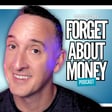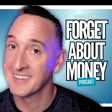
🏡 Real Estate Investing for Beginners: Empowerment and Early Retirement with Sarah King 💪
Subscribe and Watch on YouTube
💬 David chats with Sarah King, an experienced real estate investor who has transformed her financial life by paying off substantial debt and building a rental property empire. 🏘️
🌟 Sarah shares her journey from debt repayment to establishing a successful portfolio of rental properties, offering invaluable advice for real estate investing beginners. 💼
🔑 Key Topics Discussed:
⇨ Real estate investing for beginners: Tips and strategies
⇨ Understanding real estate investing fundamentals and types
⇨ Calculating cash flow and using the 1% rule
🔗 Sarah’s Links:
🎥 Brandon Turner’s Four Square Method
📘 Set for Life book by Scott Trench
📹 HSA - Health Savings Account Benefits
🌐 Chad Carson aka Coach Carson
📚 Paula Pant’s “Your First Rental Property Course”
📖 Raising Private Capital book by Matt Faircloth
📕 The Hands Off Investor book for Syndication Deals by Brian Burke
📘 The Simple Path to Wealth book by JL Collins
📖 Retire Early with Real Estate book by Chad Carson
🎙️ Bigger Pockets Rookie Podcast
🔗 David's Links:
🍏 Forget About Money on Apple Podcast
🎧 Forget About Money on Spotify
📖 Rich Dad Poor Dad book by Robert Kiyosaki
🎧 Listen & Subscribe:
Don’t forget to subscribe to "Forget About Money" for more insightful episodes featuring experts who guide you on simplifying your finances and achieving financial independence. Hit the bell icon 🔔 to get notified of new episodes!
#RealEstateInvestingForBeginners #SarahKing #RealEstateInvesting #CashFlow #PropertyInvestment #HouseHacking #RentalProperties #TaxBenefits #RealEstateStrategies #FinancialIndependence #InvestingTips

